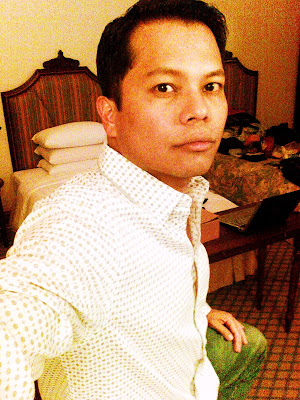.jpg)
I was speaking to a friend recently and I recalled a principal I learnt from 'The 7 Habits of Highly Effective People' by Stephen R. Covey.
We all know what a financial bank account is. We make deposits into it and build up a reserve from which we can make withdrawals when we need to. An Emotional Bank Account is a metaphor that describes the amount of trust that's been built up in a relationship. It's the feeling of safeness you have with another human being.
We all know what a financial bank account is. We make deposits into it and build up a reserve from which we can make withdrawals when we need to. An Emotional Bank Account is a metaphor that describes the amount of trust that's been built up in a relationship. It's the feeling of safeness you have with another human being.
If I make deposits into an Emotional Bank Account with you through courtesy, kindness, honesty, and keeping my commitments to you, I build up a reserve. Your trust toward me becomes higher, and I can call upon that trust many times if I need to. I can even make mistakes and that trust level, that emotional reserve, will compensate for it. My communication may not be clear, but you'll get my meaning anyway. You won't make me an offender for a word.' When the trust account is high, communication is easy, instant, and effective.
But if I have a habit of showing discourtesy, disrespect, cutting you off, overreacting, ignoring you, becoming arbitrary, betraying your trust, threatening you, or playing little tin god in your life, eventually my Emotional Bank Account is overdrawn. The trust level gets very low. Then what flexibility do I have?
None. I'm walking on mine fields. I have to be very careful of everything I say. I measure every word. It's tension city, memo haven. It's protecting my backside, politicking. And many organizations are filled with it.
If a large reserve of trust is not sustained by continuing deposits, a friendship will deteriorate. Instead of rich, spontaneous understanding and communication, the situation becomes one of accommodation, where two people simply attempt to live independent life-styles in a fairly respectful and tolerant way. The relationship may further deteriorate to one of hostility and defensiveness.
The 'fight or flight' response creates verbal battles, slammed doors, refusal to talk, emotional withdrawal and self-pity. It may end up in a cold war at home, sustained only by sex, social pressure, or image protection. Or it may end up in open warfare where bitter ego decimating legal battles can be carried on for years as people endlessly confess the sins of a former friend.
And this is in the most intimate, the most potentially rich, joyful, satisfying and productive relationship possible between two people on this earth.
Our most constant relationships, like friendship, require our most constant deposits. With continuing expectations, old deposits evaporate. If you suddenly run into an old high school friend you haven't seen for years, you can pick up right where you left off because the earlier deposits are still there. But your accounts with the people you interact with on a regular basis require more constant investment. There are sometimes automatic withdrawals in your daily interactions or in their perception of you that you don't even know about.
What would happen if you started making deposits into the relationship? Maybe the opportunity comes up to do him a little kindness - to bring home a magazine he likes from your overseas trip, if that's his interest, or just to walk up to him when he's working on a project and offer to help. Perhaps you could invite him to go to a movie with you or take him out for some ice cream.
Probably the most important deposit you could make would be just to listen, without judging or preaching or reading your own autobiography into what he says. Just listen and seek to understand. Let him feel your concern for him, your acceptance of him as a person. He may not respond at first. He may even be suspicious, but as those genuine deposits keep coming, they begin to add up. That overdrawn balance is shrinking.
Remember that quick fix is a mirage. Building and repairing relationships takes time. If you become impatient with his apparent lack of response or his seeming ingratitude, you may make huge withdrawals and undo all the good you've done.
It's hard not to get impatient. It takes character to be proactive, to focus on your Circle of Influence, to nurture growing things, and not to 'pull up the flowers to see how the roots are coming.' But there really is no quick fix. Building and repairing relationships are long-term investments.
I have tried to make this my philosophy in life. So far, I must say that Mr. Covey’s teaching has held true.

